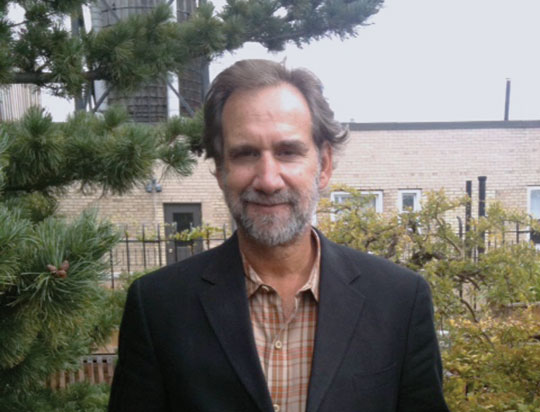Alumni News: The Psychoanalyst Who Didn't Take Things Lying Down
Tony Bass helped start a radical movement in psychoanalysis. Today's it's become mainstream
Tony Bass helped start a radical movement in psychoanalysis. Today’s it’s become mainstream
By Elizabeth Dwoskin
The 1980s in America are generally regarded as a time when the country veered in a conservative direction. Not so in psychotherapeutic circles, however. There, a new movement called relational psychoanalysis pushed the profession to become more cognizant of the effects of the therapist’s participation—or, as Tony Bass puts it, of how patient and analyst “co-create the psychoanalytic situation.”
“It seems obvious now,” says Bass, a faculty member and supervising analyst at NYU’s Postdoctoral Program in Psychoanalysis and Psychotherapy. “But it wasn’t then.”
In traditional psychoanalysis, Bass says, the analyst was seen as neutral, “almost like a screen on which patients cast different images from their past.” But a group of young colleagues at NYU, led by Stephen Mitchell, co-author of the landmark text Object Relations in Psychoanalytic Theory, took issue with this approach. They were children of the ‘60s, skeptical of all authority, including the analyst’s. “We felt that the particulars of who a person is has a shaping element of the work,” says Bass. “We needed an open exploration of what each of us is bringing to the situation. It was a radical thing.”
Relational psychoanalysts like Neil Altman, author of The Analyst in the Inner City, would also ultimately make class issues central to their overall philosophy.
“There was a tremendous sense of excitement about studying something new and important,” Bass recalls. “It was thrilling to be part of a new movement that was gaining traction and really influencing what was going on in the whole field.”
None of this ferment was on Bass’s radar in 1978, when he came to TC to study clinical psychology (he wrote a dissertation on eating disorders). Prior to that he had worked at the University of California Medical Center in San Francisco and completed a master’s degree at Harvard Graduate School of Education.
But at NYU’s postdoctoral program in Psychoanalysis and Psychotherapy, Bass met Mitchell, who became first his mentor and then his colleague and close friend. A group embraced and expanded upon Mitchell’s ideas, launching a journal, Psychoanalytic Dialogues, that Bass now edits, and—in 2000, following Mitchell’s death—the Association for Relational Psychoanalysis and Psychotherapy. And inevitably, what had been radical became accepted and even mainstream.
Today, the Association has about 1,000 members across 25 countries, and Bass and his colleagues have trained hundreds of students. In addition to his duties at NYU, Bass teaches at number of postdoctoral programs where relational psychoanalysis is taught and directs the Stephen Mitchell for Relational Studies, in New York City.
But perhaps the ultimate sign that things have moved full circle came last fall, when Bass was invited back to Columbia to join the faculty at the prestigious Center for Psychoanalytic Training and Research—a bastion of the traditional approach that he and his colleagues had critiqued and rebelled against for two decades.
Bass says that the people who invited him there told him that, in a certain way, it was a historic moment for the institution:
“Here was this great and formidable institute of traditional psychoanalysis, welcoming someone to its faculty who represented a movement in psychoanalysis that questioned the analyst’s authority.”
Published Friday, May. 20, 2011
